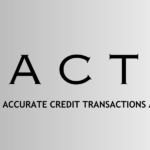Have you ever wondered how your personal financial information stays protected in an age where data breaches seem all too common? The Fair and Accurate Credit Transactions Act (FACTA Law), established to safeguard consumer data and enhance credit system accuracy, plays a pivotal role in your financial life. This guide will explore how FACTA helps in securing your credit and empowers you to manage your credit health effectively. What rights do you have under FACTA, and why do they matter? Let’s uncover these aspects together.
Your Rights Under FACTA Law
Navigating through your credit report might seem daunting, but did you know that FACTA grants you specific rights to make this process more transparent and secure? From obtaining your free annual credit report to placing fraud alerts and disputing inaccuracies, FACTA Law provides tools that are essential for maintaining your financial stability. How can these tools be used to your advantage, and what steps should you take if you find discrepancies in your credit report? We will guide you through these procedures to ensure you can fully leverage your rights under FACTA Law.

Understanding the Fair and Accurate Credit Transactions Act (FACTA)
The Fair and Accurate Credit Transactions Act (FACTA) is a pivotal piece of legislation passed in 2003, designed to amend the Fair Credit Reporting Act of 1970. This amendment was crucial in enhancing consumer protections, especially against the backdrop of rising identity theft incidents. FACTA Law is best known for granting consumers the right to access their credit reports for free once a year from each of the three major credit bureaus.
Key Features and Functions of FACTA
FACTA Law introduced several significant measures to combat identity theft and enhance consumer security. Financial institutions are now required to take reasonable steps to protect sensitive customer information. This includes the secure disposal of documents and the truncation of credit card and Social Security numbers on receipts.
Additionally, the act mandates that credit bureaus place a fraud alert on the files of consumers who report instances of identity theft. These bureaus must also notify other bureaus of the potential fraud. Beyond these consumer-facing measures, FACTA imposed rigorous new rules on businesses, particularly in how they handle and verify customer information.
The Impact of FACTA on Identity Theft
Despite the protections offered by FACTA Law, identity theft remains a significant challenge. In 2023, the Federal Trade Commission’s IdentityTheft.gov website logged over 1.1 million reports of identity theft. This persistent issue underscores the need for continued vigilance and adaptation of security measures in the digital age.
Enforcement and Compliance Under FACTA
The enforcement of FACTA falls to the Federal Trade Commission (FTC), which conducts audits and oversees compliance among credit bureaus and financial institutions. Non-compliance can lead to severe penalties, emphasizing the importance of adherence to the regulations set forth by FACTA Law.
How Consumers Can Leverage FACTA for Protection
Under FACTA Law, consumers are entitled to one free credit report every year from each of the three major credit bureaus, accessible through AnnualCreditReport.com. This provision is crucial for monitoring and maintaining financial health. Additionally, consumers can place fraud alerts and credit freezes on their reports to protect against identity theft. These tools significantly hinder unauthorized access to credit information, thus providing robust protection against fraud.

The Red Flag Rules: A Closer Look
The Red Flag Rules represent a cornerstone of FACTA, requiring financial institutions and creditors to implement written identity theft prevention programs. These programs must be capable of identifying, detecting, and responding to activities that could suggest identity theft. This proactive measure is vital for the early detection of potential threats, safeguarding consumer information against unauthorized access.
Navigating FACTA Compliance and Violations
Understanding the common violations under FACTA Law can help consumers stay vigilant about how their personal information is handled. If a consumer suspects a violation of their FACTA rights, they should first contact the concerned business. If the issue is not resolved, filing a complaint with the FTC or consulting with a legal expert are advisable steps.
Enhancing Your Credit Health Through FACTA
FACTA not only protects against identity theft but also ensures the accuracy of credit reports, which can positively influence credit scores. Regular review of credit reports, utilization of fraud alerts, and staying informed about credit reporting practices are practical steps under FACTA that can lead to improved credit health and better financial opportunities.
By leveraging the provisions of FACTA Law, consumers can significantly enhance their financial security and credit management, paving the way for a more secure financial future.
Wrapping Up: The Protective Shield of FACTA
Throughout this guide, we’ve explored the comprehensive protections and rights afforded by the Fair and Accurate Credit Transactions Act (FACTA). This legislation not only empowers you with free annual access to your credit reports but also equips you with tools to combat and respond to identity theft. By understanding and utilizing these provisions, you can significantly enhance your financial security and credit management. FACTA’s introduction of measures like the Red Flag Rules and stringent compliance requirements for financial institutions underscores its pivotal role in safeguarding consumer information and fostering a more secure financial environment.

The ongoing challenge of identity theft, despite FACTA’s robust frameworks, highlights the necessity for continual vigilance and proactive management of your credit health. Remember, staying informed and proactive in monitoring your credit are your best defenses against potential threats. As we navigate the complexities of personal finance, FACTA remains a critical resource, ensuring that your financial journey focuses not only on managing money but also on protecting your most valuable asset—your identity.


